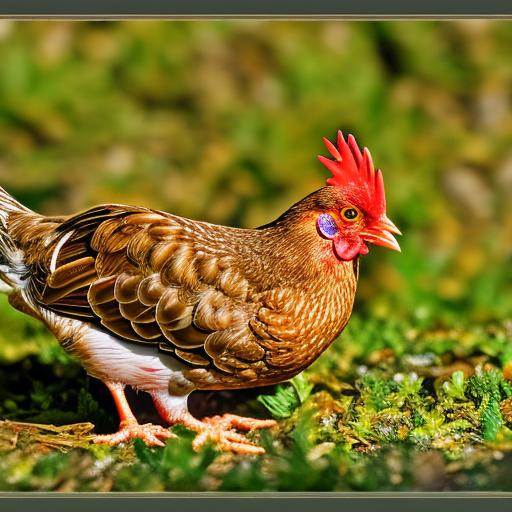Chicken keeping has become a popular hobby for many people in recent years. Whether it’s for the fresh eggs, the joy of watching them roam around the yard, or the satisfaction of raising your own food, there are many reasons why people are choosing to keep chickens. In this article, we will explore the basics of chicken keeping, including choosing the right breed, building a coop, feeding and watering, cleaning and maintaining the coop, health concerns, predator protection, chicken breeds and temperament, and the cost of keeping chickens.
Key Takeaways
- Keeping chickens requires a suitable coop that is clean, secure, and well-ventilated.
- The coop should be located in a dry, shaded area with easy access to food and water.
- Chickens need a balanced diet of grains, protein, and fresh water to stay healthy.
- Regular cleaning and maintenance of the coop is essential to prevent disease and keep chickens happy.
- Predator protection is crucial, and chicken owners should choose breeds that are well-suited to their climate and temperament.
The Basics of Chicken Keeping
When it comes to chicken keeping, there are different types of chickens that serve different purposes. Some breeds are raised for meat, while others are bred for their egg-laying abilities. There are also breeds that make great pets and can be quite friendly and sociable. It’s important to research and choose the right breed for your needs before getting chickens.
In addition to choosing the right breed, it’s important to provide your chickens with their basic needs. This includes food, water, shelter, and space. Chickens need a balanced diet that includes a mix of grains, protein, and fresh fruits and vegetables. They also need access to clean water at all times. When it comes to shelter, chickens need a coop that provides protection from predators and the elements. They also need enough space to move around comfortably.
Chicken Coop Size and Design
Having a properly sized coop is crucial for the health and well-being of your chickens. Overcrowding can lead to stress, disease, and aggression among the flock. The size of your coop will depend on the number of chickens you plan to keep. As a general rule of thumb, each chicken should have at least 4 square feet of indoor space and 10 square feet of outdoor space.
When it comes to coop design, there are many options to choose from. Some people prefer to build their own coop, while others prefer to buy a pre-made one. The design of the coop should provide adequate ventilation, natural light, and protection from predators. It should also be easy to clean and maintain.
Chicken Coop Location
Choosing the right location for your chicken coop is important for both you and your chickens. The coop should be located in an area that is safe from predators, such as raccoons, foxes, and hawks. It should also be convenient for you to access for feeding, watering, and cleaning.
Ideally, the coop should be placed in an area that receives some shade during the hottest part of the day. It should also be located away from any noise or disturbances that could stress out the chickens. Additionally, the coop should be situated on well-drained ground to prevent flooding and waterlogging.
Feeding and Watering Chickens
Feeding and watering your chickens properly is essential for their health and well-being. There are different types of feed available for chickens, including pellets, crumbles, and scratch grains. It’s important to choose a feed that is appropriate for the age and purpose of your chickens. For example, chicks require a different type of feed than adult chickens.
When it comes to waterers, there are several options available, including gravity-fed waterers, nipple waterers, and open dishes. It’s important to provide clean water at all times and to regularly clean and refill the waterers to prevent bacterial growth.
Cleaning and Maintaining the Chicken Coop

Keeping your chicken coop clean and well-maintained is crucial for preventing health issues and keeping your chickens happy. Regular cleaning helps to remove waste, parasites, and bacteria that can cause disease. It also helps to control odors and flies.
To clean the coop, start by removing all bedding material and waste from the floor. Scrub the walls, roosts, and nesting boxes with a mild detergent or disinfectant. Rinse everything thoroughly and allow it to dry before adding fresh bedding material. It’s also important to regularly check for any signs of damage or wear and tear and to make any necessary repairs.
Health Concerns for Chickens
Chickens can be susceptible to a variety of health issues, including respiratory infections, parasites, and nutritional deficiencies. It’s important to be aware of the common health issues that can affect chickens and to take steps to prevent and treat them.
Regularly inspect your chickens for any signs of illness, such as coughing, sneezing, lethargy, or changes in appetite or behavior. Provide a balanced diet that meets their nutritional needs and ensure they have access to clean water at all times. Keep the coop clean and well-ventilated to prevent the spread of disease. If you notice any signs of illness, consult a veterinarian who specializes in poultry health.
Predator Protection
Protecting your chickens from predators is essential for their safety and well-being. Raccoons, foxes, hawks, and other animals can pose a threat to your flock. There are several steps you can take to keep your chickens safe.
First, make sure your coop is secure and predator-proof. This includes using sturdy materials, such as hardware cloth, for fencing and covering windows and vents with predator-proof mesh. Install locks on doors and windows to prevent animals from gaining access.
Second, provide your chickens with a safe outdoor area by using a run or electric fencing. This will help to keep predators out while still allowing your chickens to enjoy some fresh air and exercise.
Third, be vigilant and observant. Keep an eye out for any signs of predators in the area, such as tracks or droppings. If you notice any signs of a predator, take immediate action to protect your flock.
Chicken Breeds and Temperament
There are many different breeds of chickens, each with its own unique temperament. Some breeds are known for being friendly and sociable, while others are more independent or skittish. It’s important to choose a breed that fits your lifestyle and needs.
If you have children or want chickens that are good with people, consider breeds such as the Rhode Island Red, Sussex, or Orpington. If you have limited space or want chickens that are good at foraging, consider bantam breeds or heritage breeds. If you want chickens that are good layers, consider breeds such as the Leghorn or Australorp.
The Cost of Keeping Chickens
Keeping chickens does come with some costs, but it can also be a budget-friendly hobby. The initial costs include purchasing or building a coop, buying chickens, and purchasing feed and supplies. Ongoing costs include feed, bedding material, and any necessary veterinary care.
To save money, consider building your own coop instead of buying one. Look for deals on feed and supplies, and consider buying in bulk to save money in the long run. You can also save money by using natural alternatives for pest control and by using kitchen scraps as treats for your chickens.
Chicken keeping is a fun and rewarding hobby that allows you to enjoy fresh eggs, connect with nature, and raise your own food. By choosing the right breed, providing a properly sized coop, feeding and watering your chickens properly, cleaning and maintaining the coop, protecting them from predators, being aware of their health concerns, considering their temperament, and budgeting wisely, you can have a successful chicken keeping experience. So why not give it a try? You may find that chicken keeping is the perfect hobby for you.
If you’re wondering about the challenges of keeping chickens, you might also be interested in learning about the mating season for turkeys. Poultry Wizard has a fascinating article that delves into the intricacies of turkey breeding and how it differs from raising chickens. Understanding the unique behaviors and requirements of turkeys can provide valuable insights for poultry enthusiasts looking to expand their flock. Check out the article on Poultry Wizard to discover more about this fascinating aspect of poultry keeping.
FAQs
What are the basic requirements for keeping chickens?
Chickens require a coop or shelter, access to food and water, and a secure outdoor area for exercise and foraging.
How much space do chickens need?
Chickens need at least 4 square feet of indoor space per bird and 10 square feet of outdoor space per bird.
What do chickens eat?
Chickens eat a variety of foods including grains, vegetables, fruits, and insects. They also require access to grit and calcium for proper digestion.
Do chickens require a lot of maintenance?
Chickens require daily maintenance such as feeding, watering, and egg collection. Coops and outdoor areas also need to be cleaned regularly.
Are chickens noisy?
Chickens can be noisy, especially when they are laying eggs or when a predator is nearby. However, some breeds are quieter than others.
Do chickens attract pests?
Chickens can attract pests such as rodents and flies. Proper coop maintenance and cleaning can help prevent pest problems.
Do chickens require a lot of time and attention?
Chickens require daily attention for feeding and watering, but they do not require a lot of time or attention beyond that. They are relatively low-maintenance pets.
Meet Walter, the feathered-friend fanatic of Florida! Nestled in the sunshine state, Walter struts through life with his feathered companions, clucking his way to happiness. With a coop that’s fancier than a five-star hotel, he’s the Don Juan of the chicken world. When he’s not teaching his hens to do the cha-cha, you’ll find him in a heated debate with his prized rooster, Sir Clucks-a-Lot. Walter’s poultry passion is no yolk; he’s the sunny-side-up guy you never knew you needed in your flock of friends!







